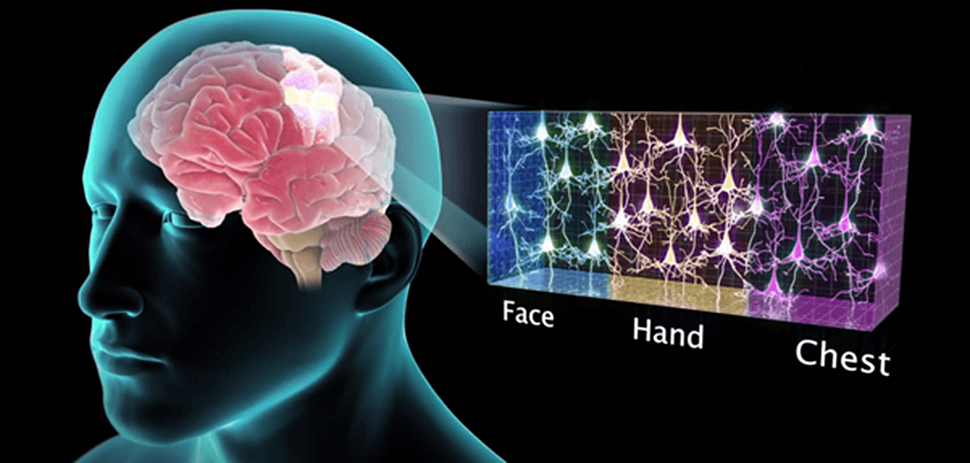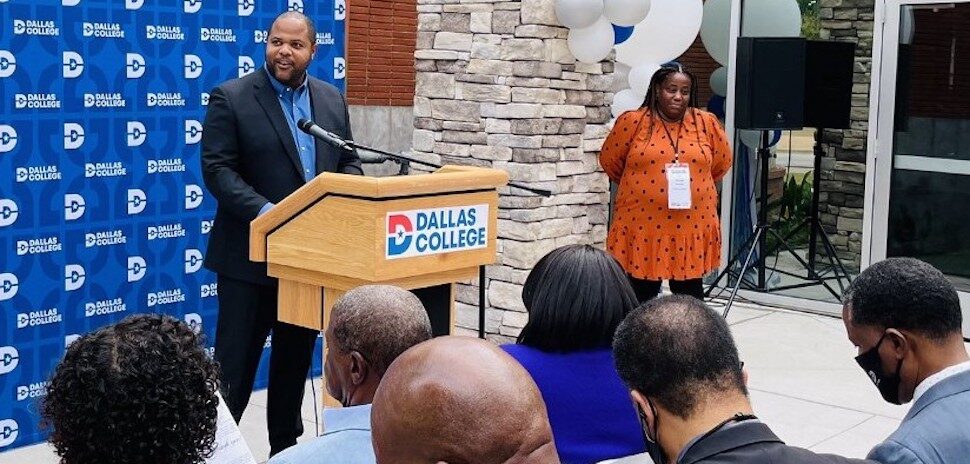![]() Every week, we pore through press releases and websites doing a little research of our own. We’re looking for scientists, professors, engineers, entrepreneurs—anybody, really—engaging in research and development across North Texas.
Every week, we pore through press releases and websites doing a little research of our own. We’re looking for scientists, professors, engineers, entrepreneurs—anybody, really—engaging in research and development across North Texas.
There’s plenty of good work being done. If you want to put R&D under your microscope, sign up for our e-newsletter.
UTD researchers invent novel stroke therapy
Researchers at the University of Texas at Dallas have made a leap forward in treating stroke patients.
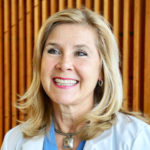
Dr. Jane Wigginton
The researchers invented a novel therapy technique that a pilot study showed doubled the rate of upper limb recovery in stroke patients, a major development in the treatment of the 800,000 people who suffer from strokes annually in the U.S.
The study was funded by UT Dallas spinoff company MicroTransponder of Austin, and the results were published this week in the journal Stroke.
According to the study, targeted plasticity therapy — which UTD said involves stimulation of the vagus nerve paired with traditional motor-skill rehabilitation — was not only shown to be safe, but twice as effective as rehab alone.
The Dallas site for the clinical trial was led by Dr. Jane Wigginton, chief medical officer at the university’s Texas Biomedical Device Center, and an associate professor of emergency medicine at UT Southwestern Medical Center.
“Stroke is too common and too debilitating for us to tolerate the status quo,” Wigginton said in a release. “Patients need a real solution so they can get back to fully living their lives.”
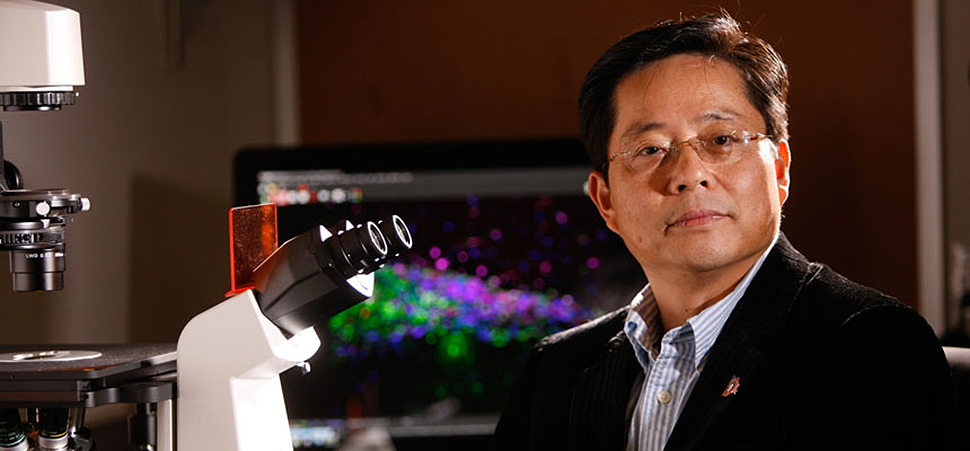
Dr. Kunlin Jin [Photo Courtesy UNT Health Science Center]
UNTHSC scientists heading to international conference on aging
Four scientists from the University of North Texas Health Science Center in Fort Worth will be among researchers from across the globe Oct. 5-8 attending the Conference on Aging and Disease in Nice, France.
UNTHSC helped organize and is co-sponsoring the conference. It’s the third year that the International Society of Aging and Disease has sponsored the conference, UNTHSC said in a release.
Among those attending will be Kunlin Jin, MD, Ph.D., a professor of pharmacology and neuroscience at UNTHSC, who is co-founder and executive director of the society.
“People not only want to live longer, they want to live healthier,” Jin said. “That’s also the goal of the International Society on Aging and Disease.”
You can find out more about the conference and what Jin does to maintain his health in Jan Jarvis’ report.
Can haunted houses improve your love life? Maybe so
Halloween is approaching, and with it, we’ll all have the opportunity to visit a haunted house and get scared out of our minds. It’s something we seldom do alone. It’s always better to go with someone you love — you know, to offer moral support. And, visiting a haunted house might even bolster that relationship.
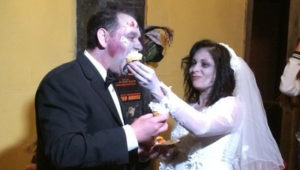
Some couples get married at haunted houses, according to American Haunts. [Photo Courtesy American Haunts]
A haunted industry association, America Haunts, said in a release that the fear generated by a good haunt can actually improve relationships, particularly romantic relationships, and that there’s science to back that claim.
Brad Nowlin, a licensed marriage and family therapist in Fort Worth, said it’s related to how your body and mind react.
“The excitement that comes with being scared, in a safe and fun environment, can pump dopamine into the brain. A scary haunted house is a good example of a situation that would stimulate the neurotransmitters to the brain that can generate both fear and attraction,” he said. “When we are scared, we instinctively grab the person we are with and stay physically close together. Then there is that euphoric moment with a rush of shared emotions when the couple knows they are safe, yet their hearts continue to race.”
American Haunt’s website allows you to find haunted houses affiliated with the association in your area. My investigation found that there are dozens of “frightful” places to do a little relationship research in DFW.
READ NEXT
R&D: SMU Gets $5M From Templetons for Engineering Research, UTA Patents ‘Smart Cushion’
![]()

